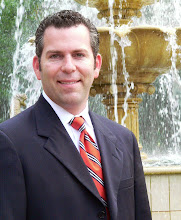
Roots... everybody's got them. Here I refer not to family heritage, but intellectual roots. Which is to say, what set of experiences and thought systems fed and nurtured my thinking? And though my theological tree be a dwarf bansai or a majestic oak, in what soil is it rooted and grounded?
I guess what got me started snooping around the base of my theological trunk was an excellent post by my colleague Dr. Dale Coulter in School of Divinity at Regent University. He was asking questions about the Reformed movement from outside that camp. In the post (you should read it) he takes a historian's view of three streams of Reformed thought; 1) Puritan Congregationalist, 2) Scottish Presbyterian and 3) Dutch Reformed. That may already be more theology than you'd care to consider, but for me it awakened memories of joining the little Presbyterian church in my hometown of Shelby NC, and coming into contact with the first root of my tree--the Reformed faith.
Root 1: Reformed thought
For those of you who don't know, in the Presbyterian way of life, you get wet as a squawking baby at the insistence of your parents. They get to feel better about themselves because they did something holy for their kid, but not quite as good as Catholic parents, because I wasn't considered "saved." That comes later. But at about age "12" you hit the next important phase (no not acne) and that's called "Communicant's Class" a.k.a. "joining the church."
I was pretty excited about joining the church because it seemed a real bummer to miss out on the grape juice and crackers that made their way around the little 150 seat sanctuary every month or so. Members could partake of that important act in a fully adult fashion, and I was eager to do so. But first, my friends and I from the 6th grade class had to make it past the pastor's "Communicant's" class .
The things I remember from that class are not all theological. I remember the girls eagerly quizzing us boys if we were in fact circumcised. We dutifully memorized verses out of Romans that we were told formed a "road" that seemed important somehow. But the big showstopper requirement was a personal interview of one of the "elders" of the church.
I arrived at the elder's home, armed with a hand held cassette recorder, knees knocking to speak to the only Doctor in our small church. But in a moment, the doctor/elder melted my fears and wrapped me up in a big, warm explanation of the truths of God, His providential care of His children, and how He made all things work together for His good. The way he said it, I just knew that it was all true.
And so it was that with my fellow communicants, and most of the members of our church, I gathered at our church camp to celebrate my first communion. And as I lifted the small cup and put the juice to my lips I caught the eye of the elder/doctor and he smiled. And my father saw that smile, and he smiled, and then the juice went down, hot and stinging. But I knew that I was in a family, rooted to generations of thinking believing men who believed that God would and could work things together for His good.
What were the roots of your beliefs? I would love to hear them.
Root 2 (Coming soon) Charismatic
A similar tangled root system can be found in the writings of James Smith who teaches philosophy at Calvin College in Michigan.





1 comment:
Westminster Captivity, "New Calvinists," and the Spirit
http://renewaldynamics.com/2010/05/07/westminster-captivity-new-calvinists-and-the-spirit/
. . .on a “Westminster Captivity” has raised an eyebrow or two, and also an amen. In addition, this week my Regent colleagues, Richard Kidd and Scott Pryor have entered the discussion with Kidd talking about Reformed roots and Pryor suggesting that I may have a point with respect to forensic justification. . .
Post a Comment